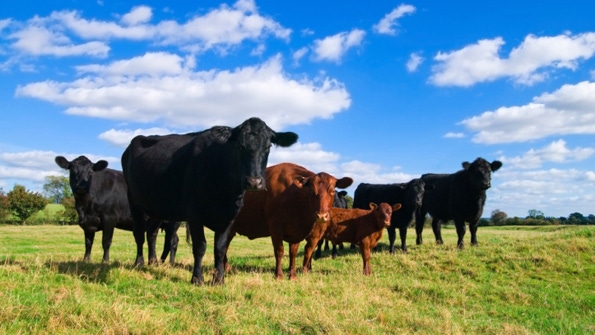Indecision or opportunity?
Be open-minded when conquering problems in the beef industry.
November 10, 2020

The biggest problem in our cattle industry today is “paradigm lockdown.” Habit is strong. Change requires work and can be frightening. Paradigm lockdown isn’t a problem of ranchers alone. There are others who help form our paradigms. To think of a few:
Research funding
Who funds research? Some research is done at USDA stations, where the funding appears to come from USDA and is hopefully completely unbiased.
However, more and more of the research at land-grant institutions is funded by companies that have something to sell to livestock producers. It is difficult to believe there is no bias in the published results, when I know of studies that were never published because the results were unfavorable for the products being studied.
So, I have two questions: How much “grant money” research is unpublished because of unfavorable results? How can a researcher not be somewhat biased in structuring the research when his or her career depends on the continuing flow of grant money?
How much research money is spent on chemicals — fertilizers, pest control, growth enhancers, etc.? Can I suggest that perhaps we should spend an equal amount or even more trying to learn how to farm and ranch while reducing, or even eliminating, the need for these inputs?
I have seen people become more profitable while greatly reducing or cutting out use of these inputs.
Problems with government money, regulation
Why so much reliance on government money and regulation? How much is politically motivated and doesn’t address the long-term needs of most farmers and ranchers?
How much incentivizes wrong practices that, in the long run, don’t help or improve ranch owner well-being or the environment? How many farmers are getting better at farming the government than farming their own land? Should we not learn about how to produce better and healthier livestock on healthier soils with less dependence on inputs and government help? I have seen that there are ways.
Be open-minded
What is needed for a change in mindset? A few people in my life have made a huge impact in the way I look at problems and opportunities in our business.
I would encourage all to be open-minded and look for smart people who can challenge your mindset and way of doing things. You will find the better practices based on sound business and ecological principles.
Consumer feelings about feedlots
What about feedlots and other animal confinement operations? While I am not against feedlots, I have concern about consumer feelings. Most consumers are from cities. They treat their pets as well as their children. They equate animal feeling and emotion to human comfort, pain and emotion, even though that’s probably not realistic. Many don’t like what they see.
Last spring, I drove past a feedlot with one of the owners. It had been wet, and the pens were unavoidably muddy. They were well-mounded, with good bedding. I thought the animals looked comfortable. However, I said to the owner that the picture we were seeing was a “hard sell” to our city friends and consumers. He acknowledged that I was right. More feeding or grazing can be done on pasture with a significantly enhanced social and ecological effect.
Climate change
What about climate change? Are cows to blame? I have written about this before and will again. Cattle are an environmental problem when our grazing practices are not based on sound principles of soil health.
When they are, grazing and our animals can be a great tool for reduction in atmospheric carbon and erosion. Good practices can also enhance water infiltration, soil moisture retention and land productivity. I have seen these effects and am seeing them more often.
Teichert, a consultant on strategic planning for ranches, retired in 2010 as vice president and general manager of AgReserves Inc. He resides in Orem, Utah. Contact him at [email protected].
About the Author(s)
You May Also Like


.png?width=300&auto=webp&quality=80&disable=upscale)
